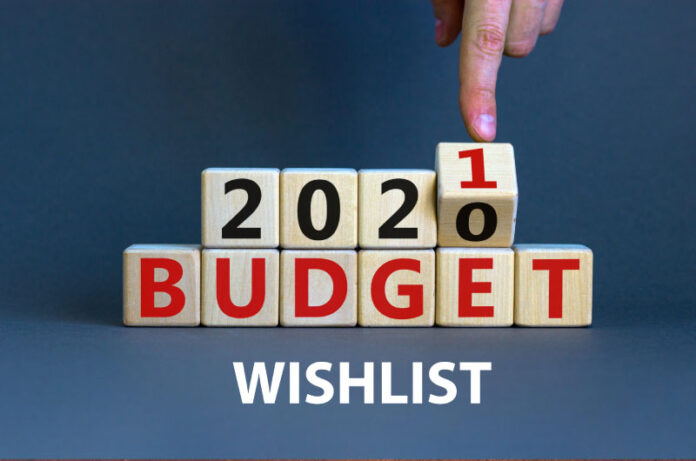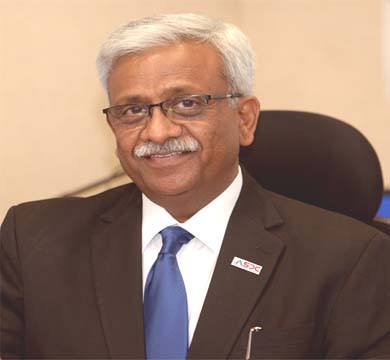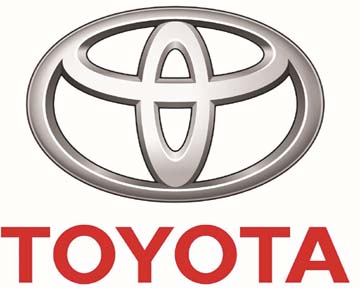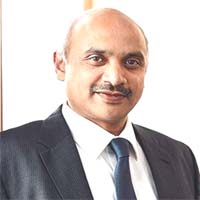
The automobile industry is keenly looking forward to February 1 when the Finance Minister, Mrs Nirmala Sitharaman, presents what could be the country’s most crucial Budget in years. Having attained a great deal of recovery post-COVID, the industry has huge expectations from the Union Budget 2021-22 to embark upon a robust growth trajectory in the year ahead.
Herewith we reproduce the wish-list presented by key stakeholders of the automotive sector ahead of the D-Day on February 1.

Mr. Vinkesh Gulati, President, FADA
The upcoming Union Budget should be focused on measures to revive the Indian economy from the pandemic slowdown and boost consumption led demand. We look forward to a demand-led, growth- oriented Budget.
Key recommendations of the Federation of Automobile Dealers Associations (FADA):
–Introduce benefits of claiming depreciation on vehicles for Individuals paying income tax and extend depreciation period for corporates.
–An increase in depreciation rate for all types of vehicles, which was valid till March 31, 2020, should be extended for FY 2021.
–Reduction of corporate tax for proprietary and partnership firms.
–Auto dealers should be kept out of annual TCS of .1 pc.
–An attractive incentive for successful implementation of vehicle scrappage policy across the country.

Mr. Subrata Ray, Senior Group Vice-President, ICRA
ICRA expects the Government to maintain its focus on the rural economy and infrastructure investments in the upcoming Budget. This apart some roadmap for the recently announced production-linked incentive (PLI) can be expected. Another long pending auto-specific policy, relating to the scrappage of Commercial Vehicles (CV) may also find a mention in the Budget.
Last year the Government had provided some boost to the consumer sentiments through tax reliefs. While rural demand has largely sustained the pandemic, the urban consumer sentiments have been significantly impacted. Considering the current challenging demand environment, any steps to boost consumer confidence and domestic consumption would be a positive for the industry.

Mr. Nikunj Sanghi, Chairman, ASDC
Automotive is the biggest organised employer and it needs to be incentivized to promote skilling internally within each organisation to ensure that skilling reaches the deepest corner of the geography of this country and maximum people gets skilled in their places of residence. As the center aims to achieve its objective of Atmanirbhar Bharat while emerging as a $5 trillion economy, upskilling and reskilling of the workforce is essential, particularly the youth. Whereas the Centre has introduced many skilling initiatives, collaborations between public and private sector companies can play a major role in skilling/reskilling programmes. Apart from this, the academic curricula must be rebooted to remain in sync with the current realities of the post-pandemic era.
The Budget 2021 is the ideal opportunity for the Ministries of Education as well as Skill Development and Entrepreneurship to work in unison to revise the university curricula and skilling programmes as per the needs of the industry.

Mr. Tarun Mehta, Co-Founder & CEO, Ather Energy
For manufacturers, one of the key challenges on investments in the sector is the concerns regarding GST inverted duty structure. In order to minimise working capital blockage, the Government should look at extending end-use based benefits to the EV industry like lowering GST rates on raw material, allowing inverted duty refunds for research and development and capital expenditure.
We also see a need for banking institutions to come up with innovative financial products for EV purchases. Further startups in their growth phase suffer from lack of options on debt financing thereby increasing finance cost burden. From an operational perspective, we are closely following the Production-linked incentive (PLI) scheme and we look forward to more progressive schemes designed for OEMs.

Mr. Pankaj Tiwari, Chief Marketing Officer, Nexzu Mobility
In the upcoming Budget, the Finance Minister should consider announcing allocations that stimulate job creation, ease-of-doing business, speed up domestic manufacturing capabilities (Atmanirbhar Bharat) by incentivising R&D initiatives taken by companies and most importantly relaxing the prevailing tax regime so as to cushion the corporates gradual return to normalcy.
For the automobile and other manufacturing sectors, the FM could consider provisions that promote the cause of increasing elements of localisation, especially for the electric-vehicle segment, ancillaries and component manufacturers to stimulate investments.

Mr Manish Bhatnagar, Managing Director, SKF India
After the global 2020 interruption, the economy is clearly on the revival mode and we are positive that 2021 will be a game-changing year, specifically for the manufacturing sector. The flexible nature of the Indian economy will help expedite the recovery path; however it needs to be backed by robust policy and investment interventions. We also expect the upcoming Budget to address and resolve some of the pain points such as increased cost of raw material like steel, rise in import freight, IP safety regulations and labour laws.

Mr Mohal Lalbhai, Founder and CEO, Matter
The automotive industry is definitely looking at 2021 to be the ‘Year of the EV.’ We would like an important anomaly with regards to the tax on batteries to be revised. There is an 18 pc GST on the replacement of lithium Ion batteries for vehicles but the GST on vehicles is 5 pc. We would like a reduction in the GST on the replacement cost of batteries for EVs and bring it in line with the overall policy.
The second expectation is that under FAME II subsidy, the Government has kept a cap of Rs. 1.5 Lakh on the ex-factory price of the vehicle on which subsidy is applicable. This is a 5 year old price point, and with the moving commodity prices, we would expect the Government to increase this limit by at least an additional 10 pc to Rs 1.65 lakh.
Finally we would like to urge the Government to incentivise EV manufacturers when it comes to R&D. Given the Government’s clarion call for Aatmanirbhar India, the country needs to take the lead when it comes to the development of new technologies that go on to redefine motor vehicle transportation for decades. The Government should incentivise manufacturers and academia to collaborate together to make this happen.

A spokesperson, Toyota Kirloskar Motor
At Toyota Kirloskar Motor (TKM), we believe that focus on long-term growth and a further improvement in the investment climate are necessary for continued sustainable economic development. For this, the Union Budget 2021 is a good time to bring in more policy measures, reforms and simplification of laws which can further strengthen ease-of-doing business.
The scrappage policy, which has been under consideration of the Government for quite some time, has the potential to simultaneously reduce pollution, fossil fuel consumption as well as boost demand for new vehicles thereby meeting many key objectives. We are hopeful that this will find a mention in the upcoming Budget along with enhanced actions to usher in reforms in land, labour and liquidity, which will help in attracting investments and improve competitiveness too. Rationalisation of custom duties on SKDs and CKDs should also be considered as it will be beneficial in the long term for faster market introduction and localisation of newer and enhanced technologies.
We are also looking forward to measures that can provide the necessary impetus for the manufacturing of xEVs and their parts in India. In order to attract investments for local xEV parts manufacturing it is necessary that Government policy support extends to all xEV technologies proportionate to the social benefits they provide. This will help for a faster, smoother and disruption free technology shift to electrified vehicle eco-system.

Mr Nagesh Basavanhalli, Group CEO & MD, Greaves Cotton Limited
With a view to achieving the goal of 100 pc electric vehicles in the country by 2030, we need to take the following under consideration:
First of all, the Government should invest in creating a robust mass awareness campaign among general public about moving towards safe, sustainable and affordable electric vehicles in order to dispel common myths. Secondly, it would be great if the Government maintains GST at 5 per cent only and not increase it and create more awareness among the people about the tax benefit. As part of Atmanirbhar Bharat and Vocal for Local initiatives, the Government should provide incentive and support industry players who are looking to setup manufacturing base for electric vehicles. Lastly, in order to provide a level-playing field for EV manufacturing companies, the Government should consider keeping the import duty to 5 per cent or less on Li-ion cells as the same is scheduled to go up to 10 per cent effective April 2021.

Mr Anil Kumar, MD and President, SEG Automotive
To boost the pandemic-affected economy, the Budget should be focused on pushing consumption through enhanced liquidity in the working class, enhanced demand in key sectors and promote investment for Atmanirbhar Bharat through special incentives for enhanced competitiveness. The following measures need to be considered:
–Enhanced liquidity for consumption
–Tax relief for the working class and redefining of tax slabs putting more money in the hands of people for spending
–GST reduction on automobiles (28 pc to 18 pc) across sectors
–Expedite implementation of scrappage policy
–Special focus on Infrastructure sector and rural economy
–Expedite new projects
–Enhance competitiveness of local manufacturers and boost investment
–Uniform GST for automobiles and auto component manufacturers at 18 per cent
–Reduced GST on EV batteries
–Tax rebate on investments made for R&D and production
–Production-linked incentives to cover all medium and large-scale industries in auto sector, with special focus on exports
–Special production-linked incentives/tax benefits for EV component manufacturers (all components) to promote establishment of local supply chain for EV.
–Tax rebates on raw material like copper, ferrite, steel and aluminium to compensate against the increasing prices.









